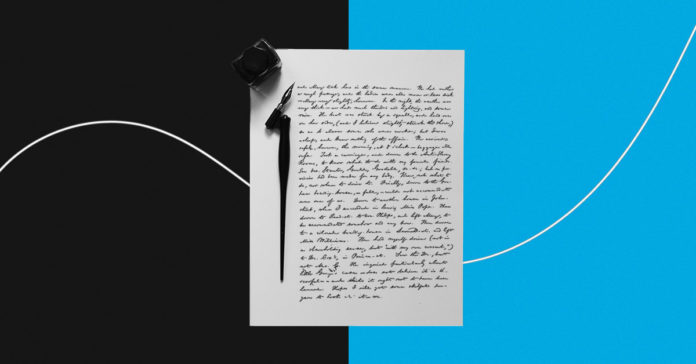It is evident from the narrations that have reached us that the poetic movement was active during the era of the Rightly Guided Caliphs. It is well-known that the books of poetry did not rely upon the chain of the most trustworthy of narrators. Nevertheless it is still the sole source of poetry narration and critique connected with the Rightly Guided Caliphs, all the Companions and those who follow them in goodness with the exception of a few stanzas repeated during the time of the Prophet ﷺ and which have been related in the books of Hadith.[1]
The reference in relation to poetry and poets during the time of ‘Ali (ra), were the books of poetry and poets which are rich in this aspect. ‘Ali’s (ra) position in poetry did not differ from that of the other Rightly Guided Caliphs who preceded him. Each of them drew from the Book of Allah and the Sunnah of His Messenger. He used to listen to poets reciting poetry in his presence with themes which were truthful and imbued with lofty meanings. He also used to give gifts to poets if he was impressed by their renditions. Similarly, we have come across earlier on what the Bedouin Arab said:
“You have enrobed me in a garment whose beauty has faded
Soon shall I enrobe you in the best of praise, better than the garment.“
‘Ali (ra) had exquisite and critical views in poetry and it never ceased to be the standard relied upon by critics in our current era. He used to say: “Poetry is the scale of words”[2] i.e. poetry has some peculiar technicalities by which good speech is distinguished from the poor one in the scales of the men of this genre of speech.[3]
As for the status of the Commander of the Faithful, as a poet, there have been differences of opinion over much of the poetry that is attributed to him. This disagreement does not however detract from the poetry whose attribution to him has been confirmed. There is no doubt in his superiority and expertise in linguistics and literary prowess. However, a researcher into his poetry will discover that the goal in his perception was not poetry.
In spite of this, he has been credited with many popular works of poetry comprising lyrics and stanzas filled with extemporaneous, apt and lofty speeches. The first person to cast doubts on the atrributability of some poetry to him was Ibn Hisham. It is related that ‘Ali used to chant this poem in the course of the building of the mosque of Allah’s Messenger ﷺ in Madinah:
“They are not equal, one who causes the mosque to flourish and persisted in it standing and sitting
And what is seen of the dust of one who turns away (from the truth.“
Ya’qub Bin Hisham said: “I asked more than one scholar concerning this Verse and they said: ‘It reached us that it was ‘Ali Ibn Talib who chanted it” and he added: “and he did not know whether he said it or someone else.”[4]
In another place, In Hisham said: “In Ishag has narrated three poems which are attributed to ‘Ali (ra) but that attribution is not authentic. It was allegedly chanted in one of the Islamic battles by one of the Muslims. When they looked at its religious meanings and the narrators, they that it befitted ‘Ali, so they attributed it to him.
As for poetic works attributed to him, Dr. Naif Ma’ruf opines that ‘Ali (ra) , with his familiar eloquence and well known style occupied a position far elevated over all of these poetic works. It is most likely that he mixed with poets at different levels and some of his followers composed poems so that he may not be seen as a poet with a belief that this is far below his dignity.
This is coupled with the knowledge that he was not from the poets of Allah’s Messenger ﷺ who were charged with responding to the propaganda that was peddled by the poets of the unbelievers against Islam and Muslims. Thus, it is not authentic that ‘Ali (ra) rendered any poetry except two lines.
However, a number of narrations contradict this opinion in which their narrators affirm for him a number of stanzas of poetry which could be authentically attributed to him, in their Own view.[5]
From the poems attributed to the Commander of the Faithful, ‘Ali Ibn Abi Talib (ra), are the following:
On patience, he said:
Do not fail to be patient upon grave occurrence
Remedy your situation with beautiful patience
Do not be impatient for if you are in a straitened circumstance one day
You have been at ease for quite a long time
Do not have an evil opinion of your Lord
For Allah is more deserving of good (opinion)
Difficulty is followed by ease
The words of Allah are more truthful than hearsay
If intelligence were to be a merchant of wealth
Wealth would have been the lot of the intelligent
How many believers would be hungry one day
But will eventually will be given to drink from the nectar of Salsabil
Concerning friendship, he said:
Do not accompany an ignorant brother
Go your own way and let him go his own way
How many ignorant persons that are destroyed
Indulgent when he is accompanied
He measures men with men
When he is unable to keep pace
On secret and keeping it:
Do not reveal your secret to anyone except to yourself
For every counselor is also in need of counsel
For I see misguided men
Who would not leave any surface sound
[The Biography Of Ali ibn Abi Talib (RA) by Dr. Ali Muhammad As-Sallabi, p. 532-535]
Notes:
[1] Al-Madinah An-Nabawiyyah Fajr Al-Islam 2/ 98.
[2] op .cit ,.1/14.
[3] Al-Adab fil Islam, Nayif Ma’ruf, p. 192.
[4] op .cit ,.1/497.
[5] Al-Adab fil Islam, Dr. Naif Ma’ ruf p. 195.









